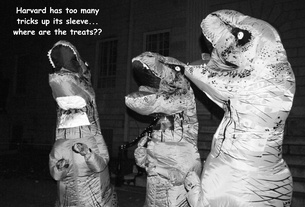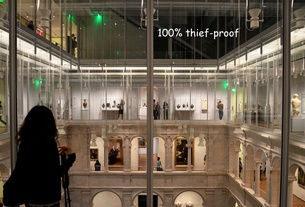MacDonald continued to stun defenses as he quietly played through the increasing fear of worsening symptoms. In Calgary, Team USA missed the medal rounds with a seventh-place finish, yet MacDonald finished the tournament tied for the team lead in goals with six in six games, including two strikes in a tight loss to the Soviet Union.
MacDonald reached a new breaking point, however, after he experienced symptoms in his first game back at Harvard the next fall. He credits the University’s resources for helping him finish his final year in a Crimson uniform.
“I really got to the point where physically and emotionally I was just a little exhausted, just in terms of all the worries, all the fears,” MacDonald says. “Fortunately, I was in an environment like Harvard where there were people like Bill Cleary, [assistant coach] Ronn Tomassoni, and [former Athletic Director] Jack Reardon [ ’60] who could help with some of these issues.”
Top Harvard neurologists monitored MacDonald’s condition, and a resident sports psychologist helped MacDonald. With the fastest man in college hockey back on the ice with new confidence, the Crimson had all the pieces in play for a championship run.
AN UNQUESTIONED LEADER
MacDonald proceeded to dominate the NCAA in his final year. During the season, he broke Harvard’s all-time marks for career goals, power play goals, and shorthanded goals and led the Crimson to its first Beanpot win in eight years with an MVP performance. At the season’s end, he became Harvard’s third and most recent athlete to accept the Hobey Baker Award as the nation’s top college hockey player.
“He was just so smooth,” says John Connolly, a longtime college hockey writer for the Boston Herald. “He was like an NBA player who you just know is going to cash in that three-point shot when he gets the ball. He would just get the puck in the goal, and [it was] effortless.”
MacDonald made his high expectations for his last season clear in his first team meeting as captain, yet he preferred not to give rousing locker room speeches. Rather, he inspired his teammates with humble leadership and an indomitable work ethic.
“Lane was the consummate captain,” says former Crimson defenseman Scott Farden ’88. “He led by example and nobody worked harder than him, nobody was more selfless. When the best player is also the hardest worker, everyone else tends to fall in line, and that’s how he led. Lane was our unquestioned leader.”
Reardon, who traveled frequently with the team during the 1988-89 season, noticed MacDonald’s ability to connect with the underclassmen and communicate with Cleary.
“Basically, it was like having another coach out there,” Reardon says. “Lane helped keep everybody together all the time.”
In the national championship game, MacDonald put Harvard up on Minnesota midway through the second period with a classic MacDonald goal. Gathering speed up the wing, he split a pair of defensemen and threaded a low shot between the pads of opposing goaltender Robb Stauber.
Later, an overtime goal from Krayer would cement MacDonald’s place in Harvard history. After all the fear and doubt, the captain could finally celebrate.
“People jump off the bench, throwing gloves, piling on people, and you have the emotion of having achieved,” MacDonald says. “The chance to share it with 25 people who sacrificed, fought, and worked together for a long period of time with one objective—rarely in life do you get that one group of people.”
CAPTAIN CONSISTENCY


